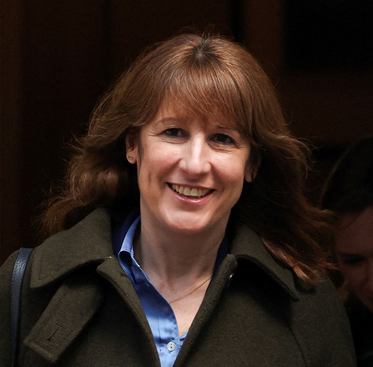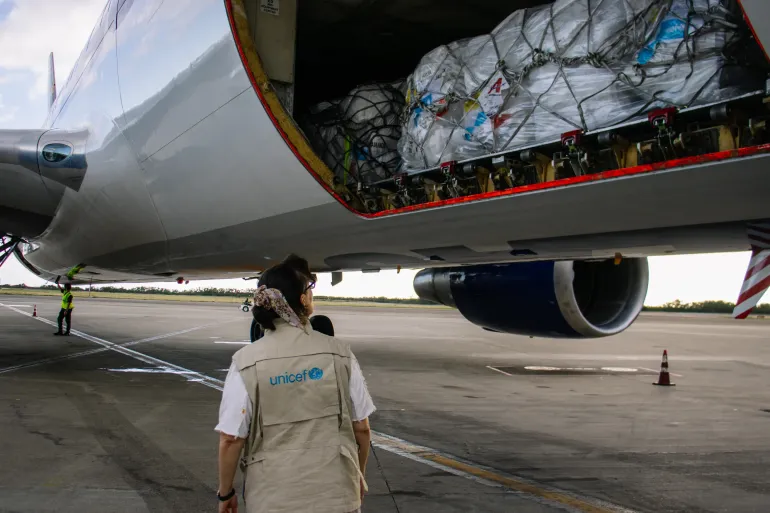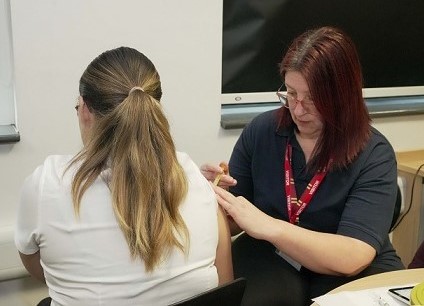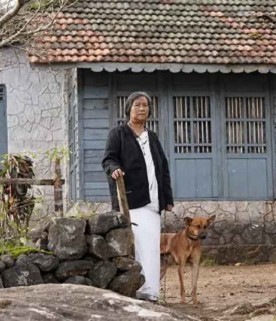In the aftermath of the devastating Category 5 Hurricane Melissa which struck Jamaica just over a week ago, UNICEF has been at the forefront of the humanitarian response, working closely with the Government of Jamaica and private sector partners to ensure that children and families receive urgent relief and protection.
Drawing on its global emergency expertise and strong local partnerships, UNICEF has delivered more than 47,000 kilograms of relief supplies to support the recovery effort. These include collapsible water tanks, hygiene kits, safe drinking water, learning materials, and emergency shelter items such as high-performance tents and tarpaulins. Supplies are being distributed across the island through the Office of Disaster Preparedness and Emergency Management (ODPEM), Ministry of Health and Wellness, Food for the Poor and education partners.
UNICEF had pre-positioned essential items ahead of the hurricane, enabling a rapid response that provided water storage for 4,700 people and education kits for 38,000 children. Overall, the organization’s support has already reached an estimated 50,000 people, including 40,000 children.
“UNICEF Jamaica is here for every child affected by Hurricane Melissa,” said Olga Isaza, UNICEF Jamaica Representative. “We are working with partners to ensure they are safe, supported, and can return to school and normal life as soon as possible.”
In alliance with Starlink Services Jamaica, UNICEF donated 50 Starlink kits to the Ministry of Health and Wellness to help to restore communication networks in the health facilities serving the affected areas, recognizing that reliable communication is critical to effective coordination during emergencies.
As schools in St Ann are preparing to reopen, UNICEF is supporting the restoration of learning and play through the delivery of School-in-a-Box kits, Early Childhood Development kits, and Recreation kits. These resources, containing items such as notebooks, crayons, puzzles, sports equipment, and blackboards, are helping to re-establish structured learning and emotional stability for children.
Beyond material assistance, UNICEF is partnering with the Child Protection and Family Services Agency (CPFSA) to identify, document, and reunite children separated from their families. The agency is also helping to establish child-friendly spaces and provide psychosocial support in collaboration with community-based organizations such as Children First, to help children recover emotionally from the trauma of the disaster.
UNICEF estimates that more than 280,000 children in Jamaica are in need of humanitarian assistance as a result of Hurricane Melissa. Priority needs include access to food, safe water, healthcare, and education, as well as protection from violence and abuse.
“We stand in solidarity with all those affected by Hurricane Melissa,” Ms Isaza affirmed. “Our commitment is to support children and families through immediate relief and long-term recovery, working hand in hand with government agencies, the private sector, and communities.”
To support UNICEF’s response, individuals may visit www.unicefjamaica.org and donate, while volunteers may contact the UN Volunteers agency @unvolunteers.











